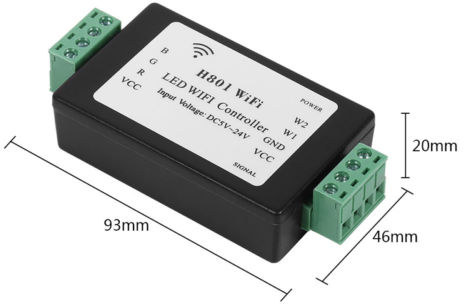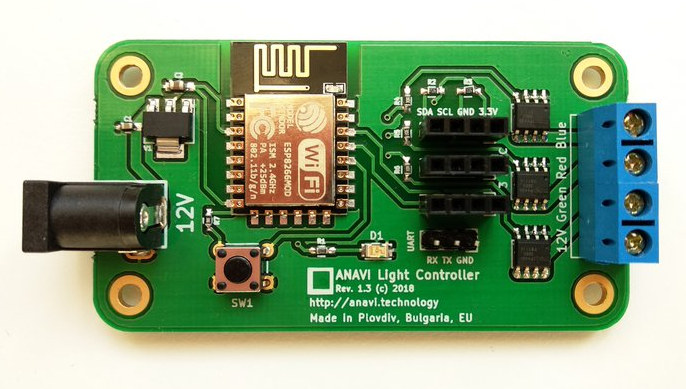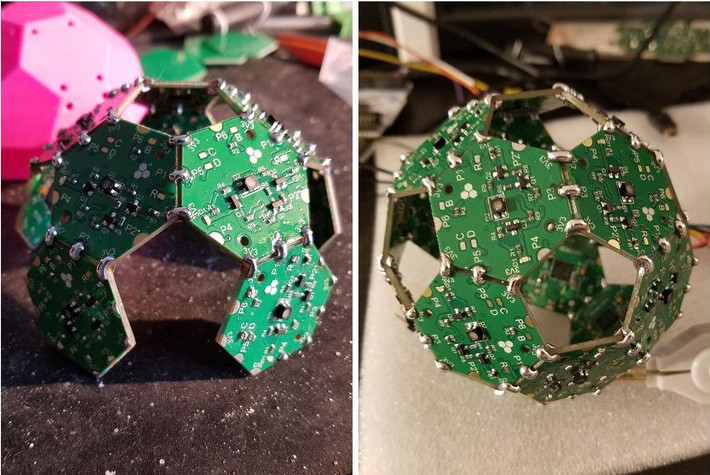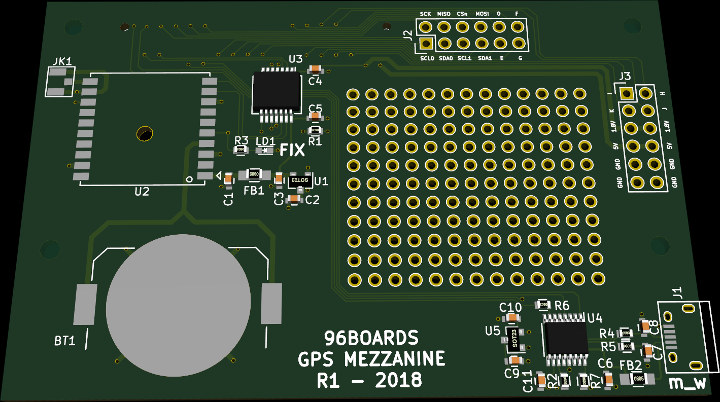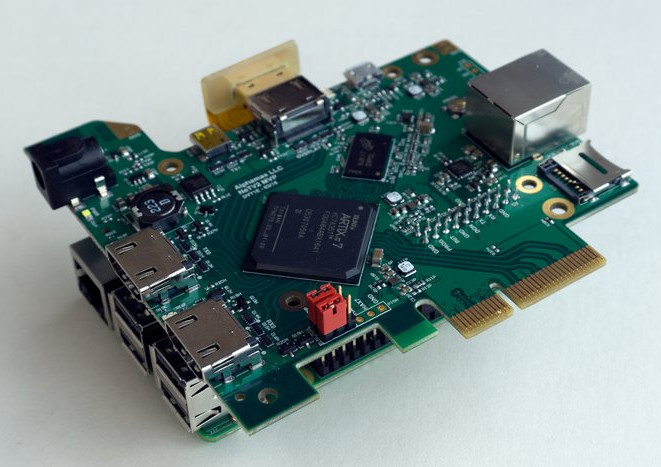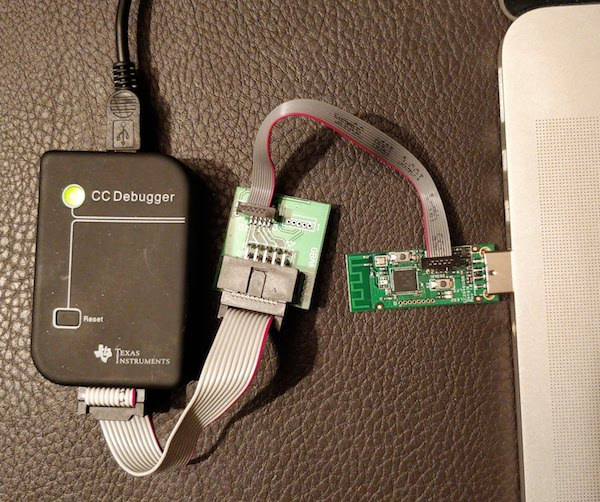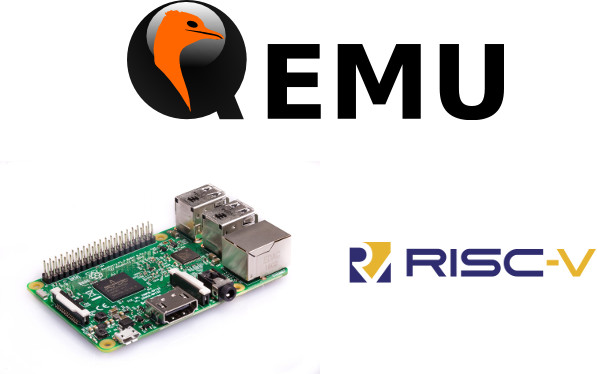This week-end, I played with ANAVI Light Controller, an open source hardware solution based on ESP8266 used control 12V RGB LED strips. The board has the advantage of being open source with KiCad schematics, Arduino firmware, and HTML5 server program available, so easy to get started and modify the features as you see fit, and it also supports external I2C sensors via three headers. That’s a low volume project made in Eastern Europe and as a result the board costs $25, so I was shortly made aware there were cheaper solution, and if you are ready to mess around a little bit, H801 WiFi controller appears to be one of the most interesting solution as it sells for under $10 shipped on Aliexpress or eBay, and is officially supported by Sonoff-Tasmota open source firmware. H801 specifications: Connectivity – 802.11 b/g/n WiFi (2.4GHz) with about 10 meter range Output – 5x […]
ESP8266 based ANAVI Light Controller can be Programmed with Home Assistant or the Arduino IDE (Crowdfunding)
ANAVI Technology previously launched a Light pHAT allowing for RGB Light strip connection to Raspberry Pi boards, and during my review of ANAVI Light pHAT with Raspberry Pi 2, it did the job, but if that’s all you want to do, the Raspberry Pi board is clearly oversized & overpowered for the job. So Leon ANAVI got back to the drawing board and designed a similar open source hardware board – called ANAVI Light Controller – with an built-in ESP8266 module that removes the need for a fully fledged Linux board. ANAVI Light Controller specifications: Wireless Module – ESP8266MOD module based on ESP8266 Tensilica L106 32-bit processor Connectivity – WiFi 802.11 b/g/n Expansion Terminal block for 12 V RGB LED strip 3x I2C headers for sensors Debugging – UART header Misc – Button Power Supply – 12 V via power barrel jack Dimensions – 75 mm x 40 mm Certification […]
Hexabitz Modular Prototyping Platform Enables Wire-Free 3D Electronics Designs (Crowdfunding)
A few years ago, I made a Raspberry Pi case made of perfboard and created some sort of DIY modular 3D electronics design by using the top and sides of the case to also hold electronics components and associated circuitry like a relay, and LEDs. The just launched Hexabitz hexagonal / pentagonal modules are designed to make prototyping easier, and also provide flexibility to create all sort of wire-free (3D) electronics designs with minimal soldering. A little over a dozen of modules are currently on offer, most with an STM32F0 Arm Cortex M0 micro-controller: Modules with built-in MCU 01R00, P01R00 – RGB LED (hexagon / pentagon) with Cree Tri-color (RGB) SMD LED, 4-Pin PLCC H02R10 – Bluetooth/BLE V4 based on Laird BT900-SA + chip antenna, +8 dBm max H04R00 – Audio amplifier, speaker, and headphone jack based on ST TS4990IST 1.2W audio power amplifier, 0.7W, 8 Ohm speaker H05R00 – SPI […]
96Boards GPS Mezzanine is the First Add-on Board part of 96boards Community Mezzanine Initiative (Group Buy)
96Boards hardware development platforms support add-on boards called Mezzanines, and you’ll find a bunch of them on 96Boards website. Most are designed and manufactured by companies, but in order to bring more (individual) open source hardware developers on-board, the 96Boards Community Mezzanine initiative was launched to bring industry representatives and community members together. The idea is to encourage people to submit their KiCad/Altium 96boards’ mezzanine designs to the github repository, and the manufacturing costs of the most popular designs can be lowered by offering them through GroupGets group buying platform. The first of those boards to be launched is 96Boards GPS Mezzanine with the following specifications for the R1 board: Adafruit Ultimate GPS Module PA6H_1103854 – 66 channel w/10 Hz updates MTK3339 chipset -165 dBm sensitivity External u.FL antenna connector Fix and PPS signals brought to down baseboard Expansion – USB UART breakout, breakout headers for I2C, SPI, GPIO, and […]
AsteroidOS 1.0 Released – An Open Source Linux OS for Wear OS Smartwatches
We first discovered AsteroidOS, a Linux based open source operating system working on some Android Wear (now Wear OS by Google) smartwatches, in early 2016 while looking at FOSDEM 2016 schedule. The project and community have since grown to support more watches, and a company even tried to launch an AsteroidOS smartwatch (sadly unsuccessfully), but development kept going, and now the very first stable release is out with AsteroidOS 1.0. Some of the highlights of the release: AsteroidOS 1.0 features and apps: phone notifications, an agenda, an alarm clock, a calculator, a music remote control, settings customizations, a stopwatch, a timer, and a weather forecast app. Bluetooth Low Energy (BLE) sync with Android phones using AsteroidOSSync app. Supported hardware LG G Watch, LG G Watch Urbane, LG G Watch R Asus Zenwatch 1, Asus Zenwatch 2, Asus Zenwatch 3 Sony Smartwatch 3 Software emulator for testing and development. Community supported […]
NeTV2 Open Video Development Board Works with Encrypted and Unencrypted Video Streams (Crowdfunding)
Chumby NeTV was an open source hardware Linux IPTV media player based on a Xilinx Spartan FPGA and a Marvell Armada 166 processor, and unveiled in 2011. Many years have passed since then, and now Bunnie Huang has come up with a new version. The NeTV2 development board is also optimized for open digital video application, but based on a more powerful Xilinx Artik-7 FPGA, and a Raspberry Pi 3 B+ can be added for things like seamless JTAG configuration and overlay video generation. Key features and specifications: FPGA – Xilinx Artik-7 XC7A35T-2FGG484 (available with XC7A50T option during campaign only) System Memory – 512 MB RAM, 32-bit wide DDR3-800 Storage – micro SD card, 8 MB SPI flash Video Ports 2x HDMI type A inputs 1 x HDMI type A output 1 x HDMI type D output. One input/output pair configured for in-line ‘NeTV mode’ video filtering. Max Video Bandwidth […]
Two Interesting Projects on Github: Zigbee to MQTT bridge & “Deep Painterly Harmonization”
Hey Karl here. I thought I would try and showcase some GitHub projects that I run into that seem interesting or fun. This week I will start out with 2 projects. Zigbee to MQTT bridge The first one today is a Zigbee to MQTT bridge. Previously we did a couple articles with 433MHz bridges for home automation, a diy RF bridge and one by Sonoff. This bridge is similar but with Zigbee. Unfortunately 433MHz typically have one way communications, and when a message is sent there is no response and the system has to assume the message is received. Zigbee is a 2 way protocol and an acknowledgement can be sent back. The code is moving fast right now and blowing up my GitHub notices. It is a little bit of a mystery on how this works right now with the parts list, but seems to be working for some […]
QEMU 2.12 Released with Raspberry Pi 3, RISC-V Support
QEMU is open source machine emulator and virtualizer, which I used in the past at a time when Arm boards were more expensive or hard to get than today, and more recently I tested RISC-V Linux using QEMU (fork). QEMU 2.12 has now been released with some interesting new features including RISC-V support, and initial support for Raspberry Pi 3 machine model. The Changelog is rather long, but some other notable changes include: Cortex-M33 Armv8-M emulation, used by the new mps2-an505 board. Support for various AArch64 v8.1/v8.2/v8.3 extensions. Initial support for Raspberry Pi 3 machine model i.MX7 SoC and i.MX7 Sabre board emulation. Spectre/Meltdown mitigation support for x86/pseries/s390 guest Intel IOMMU support for 48-bit addresses Many SD card emulation cleanups and bugfixes. Etc.. You can get the source code and build instructions in the download page. If you are interested in running Debian on RPI 3 model, or/and want to […]


